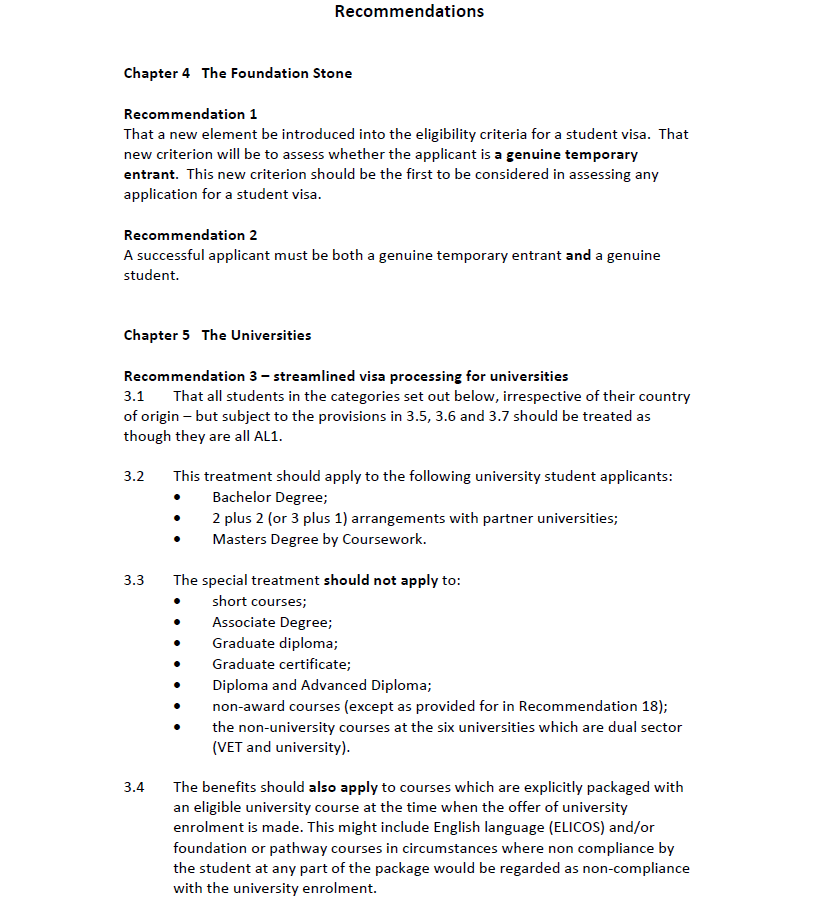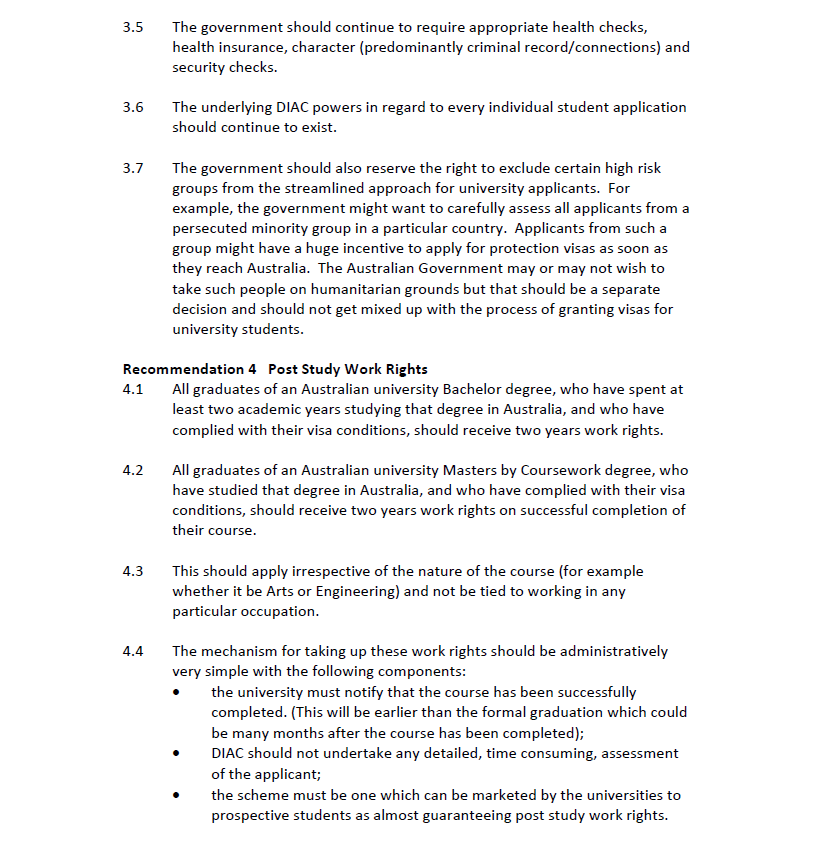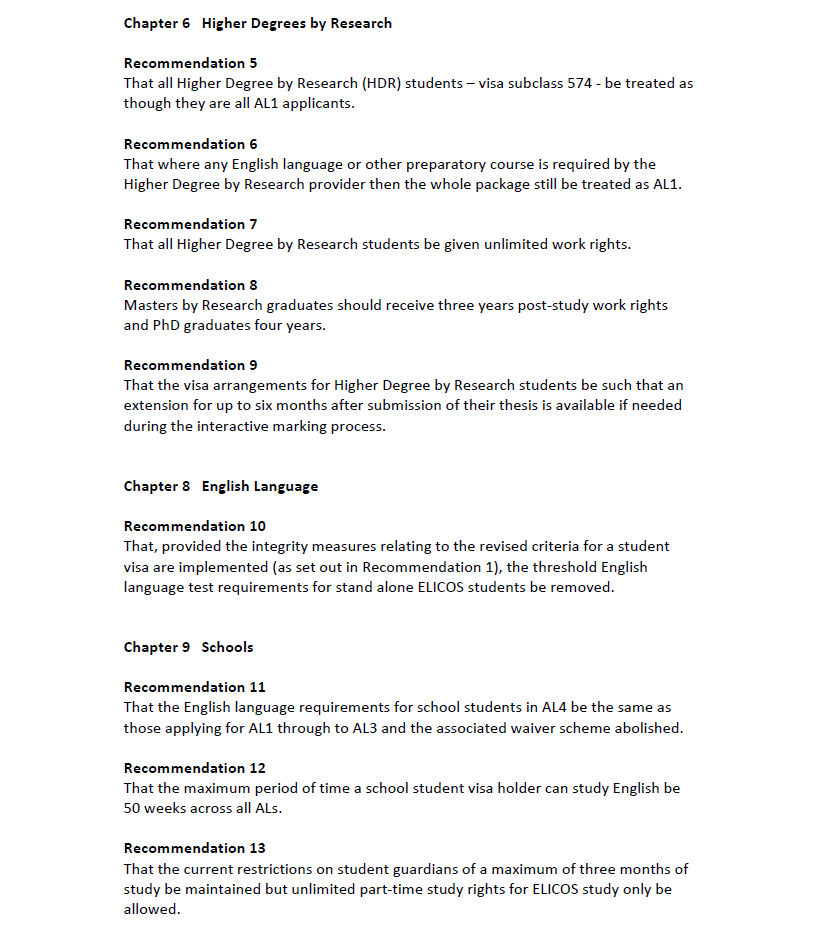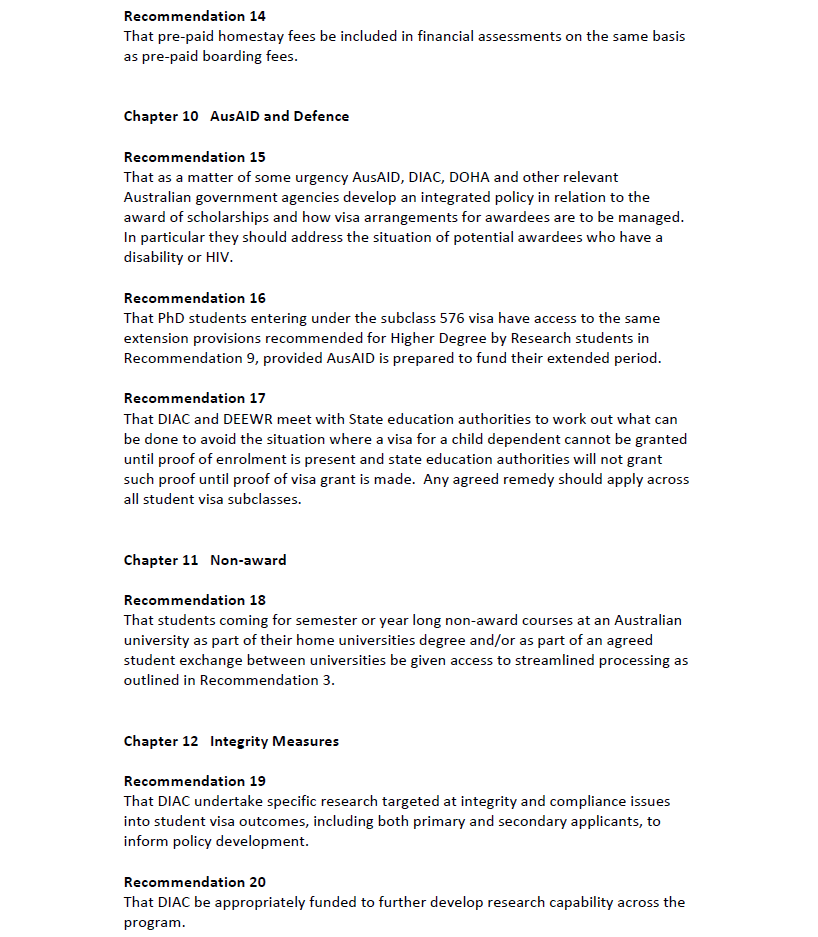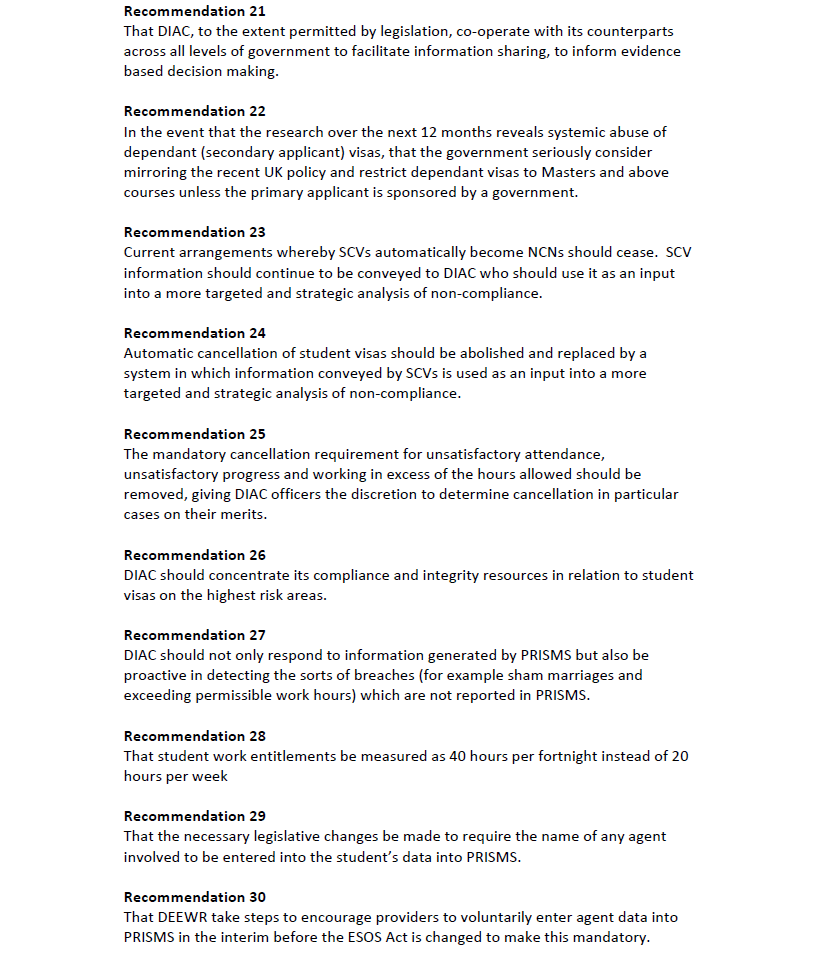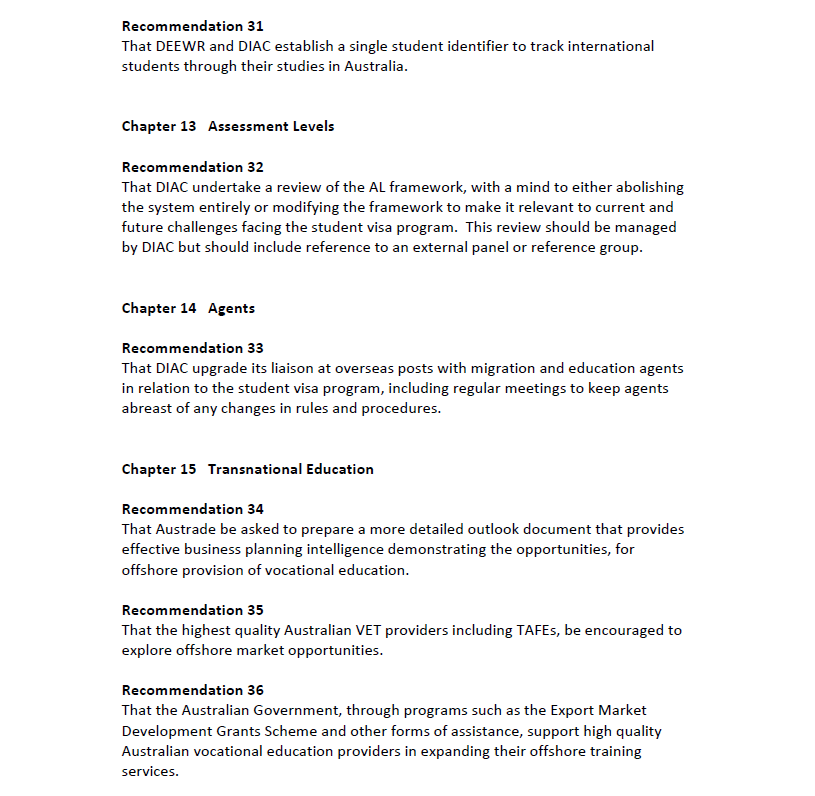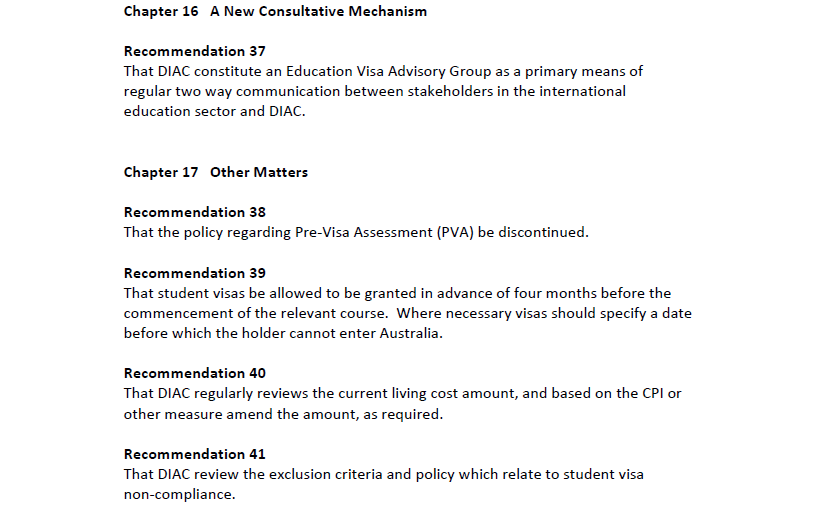|
News & Views item - September 2011 |
![]() The Knight Strategic Review of the Student Visa Program
2011. (September 23, 2011)
The Knight Strategic Review of the Student Visa Program
2011. (September 23, 2011)
Between 1995 and 2001 Michael Knight served as Minister for the Olympics
in the NSW Carr Labor government. At the end of June this year he delivered to
the Gillard Labor government the 195 page report (xxx + 165)
Strategic Review of the Student Visa Program 2011![]() .
.
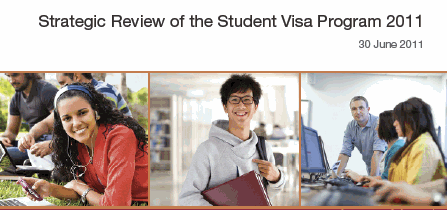
Is there more to it than the mere recommendation to improving
expectations of attracting more international cash?
In his introduction Mr Knight writes in part:
My task was to make recommendations for a sustainable program which will
balance Australia's economic interests, educational interests and migration
interests. This Report is my response.
I have sought to do is to provide practical recommendations which build upon the
existing framework while at the same time making what I consider to be essential
reforms. I have tried to make recommendations which should be relatively easy to
implement, but which can still make a substantial difference.
It is an integrated package. The initiatives that will enhance the position of
some providers should not exist in isolation. Those initiatives, and the
additional integrity measures proposed for the international student visa
program, are interdependent. In my view it would be quite dangerous to have one
without the other.
The executive summary points out:
Having more sensible criteria for assessing applicants for student visas
should go a long way towards ensuring that the integrity of Australias
migration controls are not undermined by people seeking a migration outcome
rather than an educational outcome. The best place to manage risk is in the
initial visa decision offshore. However, even with the best possible assessment
offshore there will inevitably be some applicants who misbehave once they reach
Australia. A minority will work illegally, not turn up at the courses they are
enrolled in, participate in sham marriages to bring others to work illegally,
overstay their visa periods, or fail to comply with their visa conditions in a
variety of other ways. Therefore it is crucial that DIAC has robust and
effective integrity and compliance measures within Australia.
Unfortunately the current measures are a long way short of optimal. There is an
extremely complex web of regulatory and legislative requirements including a
system of automatic cancellations and mandatory cancellations. This Report
recommends repealing the automatic cancellation and mandatory cancellation
provisions and granting DIAC officers more discretion in such matters. It
recommends targeting resources to areas of high risk. Through no fault of their
own, DIAC integrity and compliance officers spend disproportionate time on
procedural matters. Changing those settings will allow DIAC to concentrate more
integrity and compliance resources on making life difficult for anyone rorting
the student visa system.
Of particular interest to TFW were the report's comments regarding international Higher Degree by Research HDR students. But attracting the best of this group will require significant improvements in resources and conditions not merely a reduction in the conditions for visa applications and assurances of adequate personal funds
There are important non-monetary benefits to having international students
at Australian universities. They bring a diversity of culture and background
which enriches campus life for all students. International students expose
domestic students to different cultural experiences and friendships are created
across national boundaries. These people to people links can have an enduring
value for Australia over many decades. But in the end the biggest attraction is
the financial benefits most university students bring; their fees and the
broader economic stimulus that comes from the money they spend on food,
accommodation, leisure, travel etc.
The situation with Higher Degree by Research (HDR) students is very different.
For Australian universities the revenue from PhD and Masters by Research
students is almost incidental. The main driver for wanting HDR students is the
talent, the skills and the research opportunities they embody. There is strong
global competition to attract the brightest students and researchers,
particularly in the sciences, mathematics and technology. The economic benefit
they bring to Australia is not from the money they spend here; it is from the
jobs created for others by applying the research they create.
This Report makes several recommendations to help make Australia a more
attractive destination for international HDR students.
There follow forty-one recommendations:
